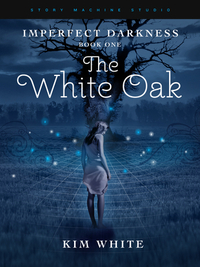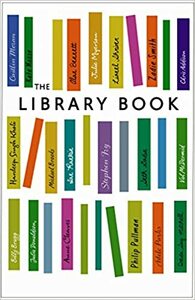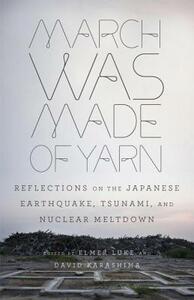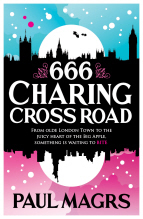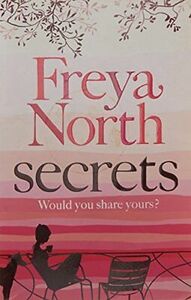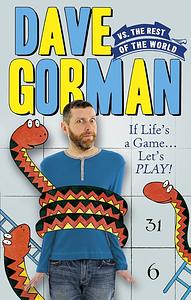You need to sign in or sign up before continuing.
Take a photo of a barcode or cover
patchworkbunny's Reviews (2.12k)
After the death of her husband, David, Maggie struggles to run his wildlife park in Derbyshire with little emotional support. She attempts to befriend Louisa, her neighbour, who was close friends with David but is faced with reluctance. Louisa has seen many women come and go from his life and she still harbours an unrequited love stemming from their teenage years together. David also left behind a son, Christopher, who has problems of his own and resents his stepmother now that his father is gone.
It's a strong, character driven novel. A widow trying to run her late husband's animal park, a jealous and paranoid neighbour, obsessed with her birds, a mentally unstable teenager and a male prostitute. It's an unusual cast and an unorthodox family of sorts and their actions may not always be forgiveable but they do make you care about them. It's a great example of how you don't have to like the strongest characters to enjoy a book.
Whilst the story starts out with an amusing tale of ibex loose in a Sainsbury's carpark, the novel has dark undertones and isn't about the animal park at all. There is much more about falconry however and the title comes from a falconry term:
"Diamond's story was written on his feathers – nothing sentimental or pretentious about that claim. When a falcon is undernourished, the feathers cannot grow properly. A fault line appears, even if the bird is fed again. The fault is called a hunger trace."
The characters' starvation is of a much more emotional kind, but at what point did their hunger traces occur? It soon becomes apparent that all is not right with Christopher, perhaps David saw that as his punishment but Maggie does her best with him. Maggie does fade into the background a little but her loneliness is apparent. Louisa is the strongest character of all and has been deeply affected by her past with David. Adam is simpler and kind, but still has his own problems.
The flashbacks were all well placed and at no point was it confusing whether events were taking place in the present or past. Set in Derbyshire, there is some direct speech with Northern dialect but I would hope it makes sense in its context even if you don't understand. Most of the main characters have had a more middle class upbringing and have been encouraged to lose their accents though, so it's not going to be on every page.
It's a strong, character driven novel. A widow trying to run her late husband's animal park, a jealous and paranoid neighbour, obsessed with her birds, a mentally unstable teenager and a male prostitute. It's an unusual cast and an unorthodox family of sorts and their actions may not always be forgiveable but they do make you care about them. It's a great example of how you don't have to like the strongest characters to enjoy a book.
Whilst the story starts out with an amusing tale of ibex loose in a Sainsbury's carpark, the novel has dark undertones and isn't about the animal park at all. There is much more about falconry however and the title comes from a falconry term:
"Diamond's story was written on his feathers – nothing sentimental or pretentious about that claim. When a falcon is undernourished, the feathers cannot grow properly. A fault line appears, even if the bird is fed again. The fault is called a hunger trace."
The characters' starvation is of a much more emotional kind, but at what point did their hunger traces occur? It soon becomes apparent that all is not right with Christopher, perhaps David saw that as his punishment but Maggie does her best with him. Maggie does fade into the background a little but her loneliness is apparent. Louisa is the strongest character of all and has been deeply affected by her past with David. Adam is simpler and kind, but still has his own problems.
The flashbacks were all well placed and at no point was it confusing whether events were taking place in the present or past. Set in Derbyshire, there is some direct speech with Northern dialect but I would hope it makes sense in its context even if you don't understand. Most of the main characters have had a more middle class upbringing and have been encouraged to lose their accents though, so it's not going to be on every page.
Cora is attending her father's funeral when the ground caves in and she is plunged underground. Instead of being buried alive, she finds herself in a world of ash devoid of anything living. She has fallen into the realm of the dead yet she is still alive.
There's something about the writing style that reminds me of the text based RPGs of old. The world around Cora is described neatly but never inferred. Cora walks through the Underworld with no real aim but dealing with whatever she happens to find on the way. Minotaur is an artificial intelligence and Cora's brother talks of creating a game that is similar to the world they now find themselves in. It makes me think that it is perhaps all a virtual world, in which case the style works well but it doesn't give much room for character development.
Whilst the world of The White Oak is mostly based on the Greek Underworld, there are elements of Persian mythology woven in too. Unfortunately the significance of the white oak isn't elaborated on in this first instalment. The fact that the Simurgh live within its branches suggests it is the Tree of Life and that the seeds in Cora's dress are going to be important to the story...but really it doesn't go anywhere.
It feels too much like an introduction and not a finished work. The characters aren't fully fleshed out like the world is. It is the first of four books and fairly short so it may be one of those series that is best read in one go, there is certainly a lot of potential in it.
There's something about the writing style that reminds me of the text based RPGs of old. The world around Cora is described neatly but never inferred. Cora walks through the Underworld with no real aim but dealing with whatever she happens to find on the way. Minotaur is an artificial intelligence and Cora's brother talks of creating a game that is similar to the world they now find themselves in. It makes me think that it is perhaps all a virtual world, in which case the style works well but it doesn't give much room for character development.
Whilst the world of The White Oak is mostly based on the Greek Underworld, there are elements of Persian mythology woven in too. Unfortunately the significance of the white oak isn't elaborated on in this first instalment. The fact that the Simurgh live within its branches suggests it is the Tree of Life and that the seeds in Cora's dress are going to be important to the story...but really it doesn't go anywhere.
It feels too much like an introduction and not a finished work. The characters aren't fully fleshed out like the world is. It is the first of four books and fairly short so it may be one of those series that is best read in one go, there is certainly a lot of potential in it.
The Library Book is a collection of memories, stories and essays which all display a passion for libraries from a variety of writers, including bestselling authors, journalists and a songwriter. From the very first lines of James Brown's This Place Will Lend You Books for Free, I thought, this person knows me. If you love books, you will find joy amongst the pages as authors share their stories of their relationship with libraries. From a young Stephen Fry discovering Oscar Wilde to the destruction of libraries in Julian Barne's dystopian England, it's a perfect book to dip into. It also serves as a great argument as to why we need our libraries and I think copies should be given to everyone who doubts that.
The China Mieville contribution is an extract from Un Lun Dun and Kate Mosse's is a reworked version of the short story, The Revenant. I did much prefer the reminiscent pieces over the stories, where it is easy to see how writing talents were nurtured.
The China Mieville contribution is an extract from Un Lun Dun and Kate Mosse's is a reworked version of the short story, The Revenant. I did much prefer the reminiscent pieces over the stories, where it is easy to see how writing talents were nurtured.
Beth received a parcel from Hungary. It brings with it news of her estranged mothers death and a scrapbook, entitled The Book of Summers full of memories of her childhood summers spent with her mother in Hungary all those years ago. As she turns the pages, she reminisces and tells the story of how she went from Erzsébet to Beth.
From line to line, it is beautifully written, creating the perfect picture of summers in Hungary. I did however find it slow to get into. The combination of descriptive prose and first person narrative doesn't really give the reader a chance to get to know the character of Beth all that easily. I also find that first person is more of a train of thought to me, and Beth's state of mind didn't gel with the person who would think in a poetic way. She is holding a grudge, comes across as mean to her father and by the end of the book, I felt that she never really grew up.
For the most part, the story concentrates on Beth's childhood which was easy to become absorbed in. There's not a lot going on but it is an ideal book to while away some summer hours reading outdoors.
It is a rather romantic view of Hungary, told through the memories of childhood summers. There are hints at its troubled past, Marika returns after the Berlin Wall has come down, but otherwise it is looked at through rose-tinted glasses. It doesn't really offer any insights into the country if that is what you're looking for.
From line to line, it is beautifully written, creating the perfect picture of summers in Hungary. I did however find it slow to get into. The combination of descriptive prose and first person narrative doesn't really give the reader a chance to get to know the character of Beth all that easily. I also find that first person is more of a train of thought to me, and Beth's state of mind didn't gel with the person who would think in a poetic way. She is holding a grudge, comes across as mean to her father and by the end of the book, I felt that she never really grew up.
For the most part, the story concentrates on Beth's childhood which was easy to become absorbed in. There's not a lot going on but it is an ideal book to while away some summer hours reading outdoors.
It is a rather romantic view of Hungary, told through the memories of childhood summers. There are hints at its troubled past, Marika returns after the Berlin Wall has come down, but otherwise it is looked at through rose-tinted glasses. It doesn't really offer any insights into the country if that is what you're looking for.
Everyone Olivia has loved has left her. After an awful day at work, she hits rock bottom and finds herself drawn to a bottle of Valium. Her overdose should have been the end of her story but she is saved by a neighbour she has never met, Jude, named after the patron saint of lost causes. He's good-looking and seems to care about her but Olivia senses there's something not quite right about his story.
Olivia's depression is depicted in a very realistic manner. There are no quick fixes and although she makes progress throughout the story, it is within the boundaries of what is believable. She doesn't fall apart when she finds herself alone again and that is backed up by the fact that she has made friends and is on medication. Ultimately, she makes a decision to get back on her feet and carry on with life.
I'm afraid the character of Jude let the book down for me. He was an annoyingly perfect boyfriend and the reasons behind what he did never seem to be fully justified. I can't quite believe that with everything he would have seen according to what his prior role was (trying to avoid spoilers here) that he would see Olivia committing suicide, fall for her and risk so much. The whole mythology was missing and I'm afraid it may be relying on some religious knowledge that I don't possess.
The plot loses momentum about half way through, shortly after we find out the truth about Jude. The characters suddenly start having lengthy conversations going over what's already happened. As the narrative is split between first person and third, this just isn't necessary to understand what's going on. The there's also an introduction of a conflict in the final chapters that hadn't had any time to be developed and felt really out of place, as if there was a need to stick some action in.
A really strong start, dealing with depression and suicide, let down by a muddled second half.
Olivia's depression is depicted in a very realistic manner. There are no quick fixes and although she makes progress throughout the story, it is within the boundaries of what is believable. She doesn't fall apart when she finds herself alone again and that is backed up by the fact that she has made friends and is on medication. Ultimately, she makes a decision to get back on her feet and carry on with life.
I'm afraid the character of Jude let the book down for me. He was an annoyingly perfect boyfriend and the reasons behind what he did never seem to be fully justified. I can't quite believe that with everything he would have seen according to what his prior role was (trying to avoid spoilers here) that he would see Olivia committing suicide, fall for her and risk so much. The whole mythology was missing and I'm afraid it may be relying on some religious knowledge that I don't possess.
The plot loses momentum about half way through, shortly after we find out the truth about Jude. The characters suddenly start having lengthy conversations going over what's already happened. As the narrative is split between first person and third, this just isn't necessary to understand what's going on. The there's also an introduction of a conflict in the final chapters that hadn't had any time to be developed and felt really out of place, as if there was a need to stick some action in.
A really strong start, dealing with depression and suicide, let down by a muddled second half.
Like all anthologies, there are going to be stories you love and some that you just don't care for. The collection is much more focused on the after rather than the actual events of March 2011. One thing I've always found Japanese writers do so well is making the mundane into something more. It just so happens that the earthquake, tsunami and resulting nuclear disaster taints this every day life now.
We get two versions of God Bless You 2011, a walk with a bear in the Japanese countryside. One was written in 1993 and the other reworked in 2011 to show the changes of the world after radiation had leaked into the environment from the Fukushima Daiichi disaster. The story takes on a whole new dimension because of it.
Perhaps it's because I have a friend with a box obsession, but I loved Box Story. When there is a shortage of boxes, someone comes up with the idea of breeding them and citizens are given breeding boxes to care for. In The Charm a woman returns to her home town feeling helpless but with a desire to do something to help. Lulu introduces a dog made of air, created in the minds of children in an evacuation centre, something to make things easier. Ride on Time is told from the perspective of a surfer, anticipating the legendary wave.
It seems telling that the one writer who chooses to detail the actual horror of the day is not Japanese. David Peace's After the Disaster, Before the Disaster comes at the end of the collection and really drives home what happened. I don't think the book would have been as enjoyable if this had been the tones throughout but it's important to acknowledge. It's all too easy for the rest of the world to forget and this book is a thought-provoking reminder.
Whilst the book is primarily made up of short stories, there is also poetry, manga and a journalistic piece.
We get two versions of God Bless You 2011, a walk with a bear in the Japanese countryside. One was written in 1993 and the other reworked in 2011 to show the changes of the world after radiation had leaked into the environment from the Fukushima Daiichi disaster. The story takes on a whole new dimension because of it.
Perhaps it's because I have a friend with a box obsession, but I loved Box Story. When there is a shortage of boxes, someone comes up with the idea of breeding them and citizens are given breeding boxes to care for. In The Charm a woman returns to her home town feeling helpless but with a desire to do something to help. Lulu introduces a dog made of air, created in the minds of children in an evacuation centre, something to make things easier. Ride on Time is told from the perspective of a surfer, anticipating the legendary wave.
It seems telling that the one writer who chooses to detail the actual horror of the day is not Japanese. David Peace's After the Disaster, Before the Disaster comes at the end of the collection and really drives home what happened. I don't think the book would have been as enjoyable if this had been the tones throughout but it's important to acknowledge. It's all too easy for the rest of the world to forget and this book is a thought-provoking reminder.
Whilst the book is primarily made up of short stories, there is also poetry, manga and a journalistic piece.
When Richard finds his neighbour dead, surrounded by images of Will Self, little does he know how his life is going to change. He's attempting to write a novel but his anti-pyschotic drugs are dampening his mind. He remembers a card that fell from Sylvie's pocket last time he saw her and follows the clue to discover a cult that worships Will Self.
The prologue is incredibly random but made me smile in a word geek kind of way. After Richard discovers Will Self, his narrative starts to imitate him and I think the use of unusual words is a little over done. However we are not stuck with one narrative and I do wonder if those that slated the book read the whole thing. Richard reveals quite early on that he is taking clozapine, a drug used to treat schizophrenia, so you start to wonder whether it's all one big hallucination.
The narrative then skips to Sylvie's ghost who is haunting Will Self. Then we go back to a diary written by Richard after a certain event has happened. The we skip to the future and we wonder if we are reading a book within a book within a book...and so on. I really quite liked the future part where Mia stumbles upon what could be a conspiracy. Where religions based on writers is the norm and instead of book to movie adaptations there's book to crime. Then finally the narration passes onto the author, but a different, fictional version. It's all a bit surreal and there are times when I had to stop reading because I felt I was losing my sanity a little.
It seems to be a homage to Will Self. I haven't read any of his novels but I know enough about him to see his quiddity in the book. Quiddity being the essence of something, the defining features. I quite like the word and it is used quite a bit, probably more skilfully than some of the “big words” that are thrown around (or sesquipedalian to use the preferred term). It does however raise the questions of the evolution of language and how the world is becoming dumbed down. The cult itself is reminiscent of Eyes Wide Shut.
If you like unconventional narrative structure or are a fan of Will Self, give it a go. It's certainly going to be a Marmite book, although unlike the yeast extract (hate) I am sat on the fence. There were bits I loved and some that were just too much. The characters go on about their genitalia a bit too much (I believe this is a Self thing) and I found myself tiring of their literary aspirations.
The prologue is incredibly random but made me smile in a word geek kind of way. After Richard discovers Will Self, his narrative starts to imitate him and I think the use of unusual words is a little over done. However we are not stuck with one narrative and I do wonder if those that slated the book read the whole thing. Richard reveals quite early on that he is taking clozapine, a drug used to treat schizophrenia, so you start to wonder whether it's all one big hallucination.
The narrative then skips to Sylvie's ghost who is haunting Will Self. Then we go back to a diary written by Richard after a certain event has happened. The we skip to the future and we wonder if we are reading a book within a book within a book...and so on. I really quite liked the future part where Mia stumbles upon what could be a conspiracy. Where religions based on writers is the norm and instead of book to movie adaptations there's book to crime. Then finally the narration passes onto the author, but a different, fictional version. It's all a bit surreal and there are times when I had to stop reading because I felt I was losing my sanity a little.
It seems to be a homage to Will Self. I haven't read any of his novels but I know enough about him to see his quiddity in the book. Quiddity being the essence of something, the defining features. I quite like the word and it is used quite a bit, probably more skilfully than some of the “big words” that are thrown around (or sesquipedalian to use the preferred term). It does however raise the questions of the evolution of language and how the world is becoming dumbed down. The cult itself is reminiscent of Eyes Wide Shut.
If you like unconventional narrative structure or are a fan of Will Self, give it a go. It's certainly going to be a Marmite book, although unlike the yeast extract (hate) I am sat on the fence. There were bits I loved and some that were just too much. The characters go on about their genitalia a bit too much (I believe this is a Self thing) and I found myself tiring of their literary aspirations.
It all starts with a book. Liza prefers her books old and fusty but she must make do with the shiny editions at Fangtasm, her local fantasy and mystery bookstore. But when bookseller Jack sees a classified for a bookshop at 666 Charing Cross Road, she writes to them begging for some new old reading material. Amongst the paperbacks with lurid covers she received a slightly moldy tome that fills her with dread. Her beagle, Rufus, knows it's trouble but he's only a dog and everyone just thinks he's in a funny mood.
Meanwhile, Shelley has discovered an ancient effigy in the basement of the New York Museum of Outsider Art. She's busy arranging an exhibition around the strangely alluring and smelly artifact but her boyfriend, Daniel, is acting a bit odd. He's quite obsessed with her Aunt Liza's latest book and is turning into a bit of a jerk.
I quite liked the bookish nature of the characters and the war between old and new books could probably mirror the ongoing debate around paper versus digital. Although books are at the centre of the story, it's mostly a bit of fantasy fun, fighting evil and romances doomed to failure. It sort of felt like a cosy mystery with an edge (sex and blood included) and I'd be interested in reading Paul Magrs' Whitby based series.
The prologue is the same text as chapter 11 which I found a bit odd. I'm used to the storyline starting in the past and working its way up to the present as in the prologue but to repeat the text seems a bit odd. It does give you a deja vu feeling as you read, I can imagine more so if you're not reading in one sitting.
Meanwhile, Shelley has discovered an ancient effigy in the basement of the New York Museum of Outsider Art. She's busy arranging an exhibition around the strangely alluring and smelly artifact but her boyfriend, Daniel, is acting a bit odd. He's quite obsessed with her Aunt Liza's latest book and is turning into a bit of a jerk.
I quite liked the bookish nature of the characters and the war between old and new books could probably mirror the ongoing debate around paper versus digital. Although books are at the centre of the story, it's mostly a bit of fantasy fun, fighting evil and romances doomed to failure. It sort of felt like a cosy mystery with an edge (sex and blood included) and I'd be interested in reading Paul Magrs' Whitby based series.
The prologue is the same text as chapter 11 which I found a bit odd. I'm used to the storyline starting in the past and working its way up to the present as in the prologue but to repeat the text seems a bit odd. It does give you a deja vu feeling as you read, I can imagine more so if you're not reading in one sitting.
Tess is running away from her old life. She's not even sure where Cleveland is when she hurriedly accepts a job as a housesitter in Saltburn-by-the-Sea, she's not even sure Joe offered her the job when she said she was on her way. She turns up at his old, large house with a baby in tow and her only possessions boxed up in her car. She's the best of a bad bunch of applicants so Joe lets her stay despite her having no idea what she's doing and she's quite obviously hiding something.
It's quite clear from the start that Tess has money problems and she's terrified of it catching up with her. As the title suggests, it's all about secrets and that it's often better to get them out in the open than letting them fester away. Tess is keeping a variety of secrets from Joe and her new friends but many of them seem quite inconsequential things to be scared about. This is often the way when someone keeps secrets for so long. Maybe it all seems a little too easy to sort things out once she starts confessing though.
Joe also has his secrets. He works abroad a lot, building bridges, and has women waiting for him in every country. Upon returning he doesn't feel like his house is home. The bridge building metaphor was perhaps a bit overdone in places and Joe's voice wasn't consistent. There's be the odd soliloquy or internal thought that didn't sound like him at all. I'll accept that he had a lot of thoughts go through his head when he has his relationship epiphany but the words on the page seemed unlikely.
I liked the setting of a Northern seaside town, it makes a nice change from London and the location adds to the story as well. Overall an enjoyable and undemanding read.
It's quite clear from the start that Tess has money problems and she's terrified of it catching up with her. As the title suggests, it's all about secrets and that it's often better to get them out in the open than letting them fester away. Tess is keeping a variety of secrets from Joe and her new friends but many of them seem quite inconsequential things to be scared about. This is often the way when someone keeps secrets for so long. Maybe it all seems a little too easy to sort things out once she starts confessing though.
Joe also has his secrets. He works abroad a lot, building bridges, and has women waiting for him in every country. Upon returning he doesn't feel like his house is home. The bridge building metaphor was perhaps a bit overdone in places and Joe's voice wasn't consistent. There's be the odd soliloquy or internal thought that didn't sound like him at all. I'll accept that he had a lot of thoughts go through his head when he has his relationship epiphany but the words on the page seemed unlikely.
I liked the setting of a Northern seaside town, it makes a nice change from London and the location adds to the story as well. Overall an enjoyable and undemanding read.
"Does anyone play any games? Real life, not computer games. Would you like a game?"
That was what Dave Gorman tweeted to the world and he wasn't short of replies. There's card games, board games, darts and more sport-like games. He meets an assortment of people, gets locked in an attic and plays with lasers.
I like the conversational writing style of Dave and I'm sure I'd enjoy his books on any topic. I did find myself losing a little interest on the poker game but there was plenty of interesting sounding games being played and some odd encounters. He's very keen on darts so he does play this more than once. It might not seem like the most exciting thing to read about but his passion shines through.
I thought it was odd at first that it's been categorised as “travel” but only half of the book is really about games. Dave does travel around Britain and takes note of his surroundings. There are some wonderful snippets about the places he visits, especially the bizarre tradition of Lewes and their bonfires. Travel is partly about meeting people and that is at the heart of the book. Even if some of the people have a screw loose...
That was what Dave Gorman tweeted to the world and he wasn't short of replies. There's card games, board games, darts and more sport-like games. He meets an assortment of people, gets locked in an attic and plays with lasers.
I like the conversational writing style of Dave and I'm sure I'd enjoy his books on any topic. I did find myself losing a little interest on the poker game but there was plenty of interesting sounding games being played and some odd encounters. He's very keen on darts so he does play this more than once. It might not seem like the most exciting thing to read about but his passion shines through.
I thought it was odd at first that it's been categorised as “travel” but only half of the book is really about games. Dave does travel around Britain and takes note of his surroundings. There are some wonderful snippets about the places he visits, especially the bizarre tradition of Lewes and their bonfires. Travel is partly about meeting people and that is at the heart of the book. Even if some of the people have a screw loose...

